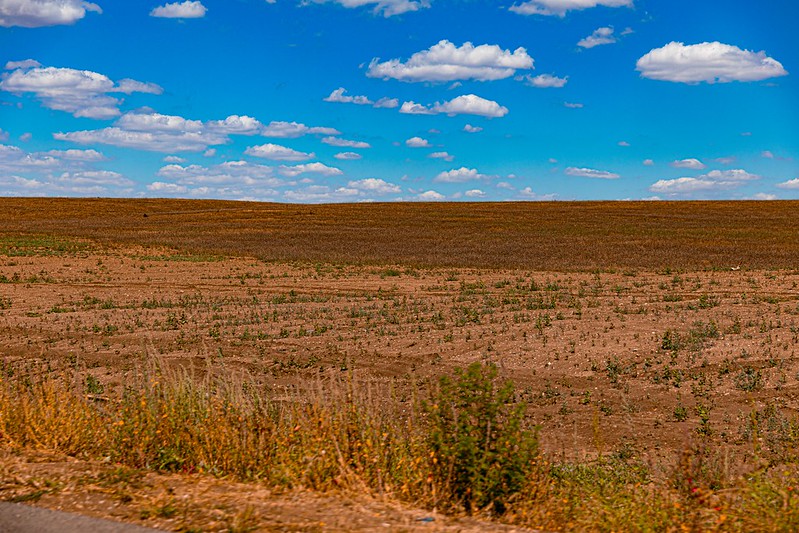|
Rest is such an important part of the life that God wants us to live! He modeled that for us during creation. "Then God blessed the seventh day and made it holy, because on it He rested from all the work of creating He had done." (Genesis 2:3) The Lord set up cycles of rest—weekly, monthly, yearly, and every seven years. Not only were the people to rest, but also their animals. (Exodus 23:12) In addition, there is provision for the land to rest. "But in the seventh year the land is to have a year of sabbath rest, a sabbath to the Lord. Do not sow your fields or prune your vineyards." (Leviticus 25:4)
The Scriptures on the land resting came to life for me as we drove past fallow fields on the way to church. Where fields were full of stalks of corn in early fall, they are bare in the spring. A field is left bare without a crop for a season so that it will produce a healthier and more vigorous crop in the season to come. "Fallowing" helps to increase the nutrients in the soil and increase the moisture in the sub-soil. The structure of the soil also improves. Another benefit to fallowing is that it disrupts the life cycles of pathogens because the host plant has been removed. Today, resting farmland is part of a crop rotation technique that farmers use. When the end of the resting period comes a cover-crop is often planted and tilled into the soil to replenish nutrients. Observing the fallow fields reminded me that at the beginning of the Hebrew year 5782 (sunset on September 6, 2021) it will be the beginning of a Sabbatical year on the Hebrew calendar. Called the Shemitah year, it is the seventh year of a seven-year agricultural cycle and is still observed in contemporary Judaism. The Hebrew word Shemitah means release. During this year, the land is to be left fallow. Anything that grows voluntarily may be eaten, and at the end of the year, all debts are to be forgiven. Releasing the land from having to produce a crop is extremely beneficial to the soil and to the crops that will grow in the future. God's call on humankind is to be fruitful for His Kingdom. One of the keys to fruitfulness in humans is rest. Repeatedly, the Lord reminded the Israelites of their need for rest. He told Moses, "The Israelites are to observe the Sabbath, celebrating it for the generations to come as a lasting covenant. It will be a sign between me and the Israelites forever, for in six days the Lord made the heavens and the earth, and on the seventh day He rested and was refreshed." (Exodus 31:16-17) The Lord is a gardener and tends to the soil of our hearts. Just as rest for the land makes it more nutritious and productive, rest for our bodies makes them healthier and improves the ground in our hearts. Rest brings peace for our minds and hearts. It replenishes us with energy. When we rest from our labors and the thoughts in our minds, giving ourselves time to focus on the Lord, we enhance our relationship with Him. He intentionally set up patterns of rest for His children. Stepping into God's rhythms of rest can transform our lives. Let's be more intentional about seeking the Lord for ways to rest in His presence. |
Joan E. MathiasCategories
All
Archives
July 2024
|

 RSS Feed
RSS Feed